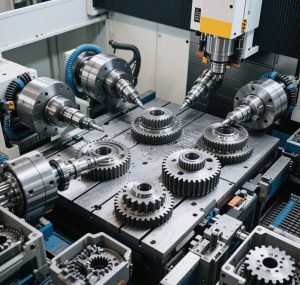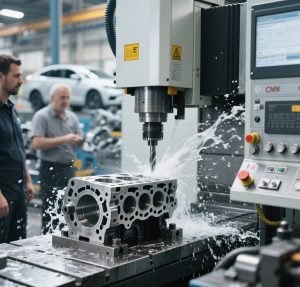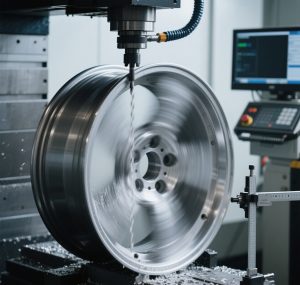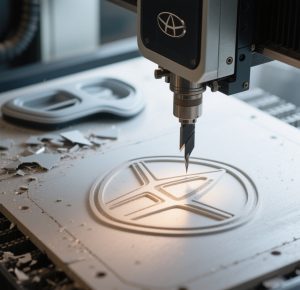How CNC Machining Is Powering the EV (Electric Vehicle) Revolution Introduction
The electric vehicle (EV) industry is one of the fastest-growing sectors in the world. As automakers transition from internal combustion engines to electric power trains, the demand for high-precision CNC machining has surged. This article explores how CNC machining supports the EV supply chain—from battery enclosures and motor housings to lightweight structural components—and outlines future trends and opportunities. CNC Machining Applications in EV Manufacturing Battery Pack Housings CNC-milled aluminum enclosures provide strength, thermal conductivity, and electromagnetic shielding for lithium-ion battery modules. High tolerance is crucial to ensure proper sealing and alignment of battery cells.

Electric Motor Components
CNC machining is used to fabricate rotors, stator housings, cooling plates, and shaft assemblies. These components require complex geometry and thermal management features. Power Electronics and Cooling Systems CNC-milled heat sinks and cooling channels ensure effective thermal control for inverters and control units. Precise machining enables efficient thermal interfaces. Chassis and Structural Parts Lightweight aluminum or magnesium components help reduce vehicle weight and extend driving range. CNC enables production of custom brackets, supports, and fasteners that integrate seamlessly with EV designs.
Key Materials in EV CNC Machining
Aluminum Alloys (6061, 7075): Lightweight, high strength-to-weight ratio, excellent machinability. Copper and Copper Alloys: Used in electrical connectors, busbars, and components that require conductivity. Steel and Stainless Steel: Applied in drivetrain parts and high-stress areas. Engineering Plastics (e.g., POM, PA66): Used for insulation parts, mounts, and clips.
Industry Trends Driving CNC Demand
Lightweighting Initiatives: OEMs are focused on reducing vehicle weight to improve energy efficiency, creating demand for complex, lightweight CNC parts. Customization and Rapid Prototyping: Shorter development cycles and frequent design iterations require fast, flexible CNC services for both prototypes and small-batch production. Vertical Integration: EV manufacturers increasingly bring CNC machining in-house or partner with precision machining suppliers to gain better control over quality and lead time. Sustainability: Recycling-friendly materials and reduced waste from subtractive processes are gaining traction in eco-conscious manufacturing strategies.
Future Outlook
CNC machining will continue to play a critical role in the EV supply chain, supporting innovation, scalability, and performance. As battery technology, autonomous systems, and lightweight materials evolve, CNC providers that embrace digital manufacturing and agile production methods will become strategic partners in the electric mobility era.



